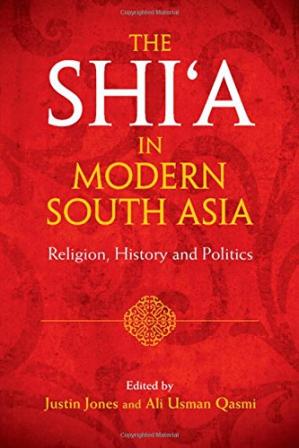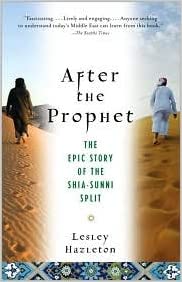Kufa: From Military Garrison to a Center of Socio-Political Movements
An English adaptation and analytical translation of Muhammad Aamir Hussaini’s Urdu book: “Kufa – From Military Garrison to Center of Socio-Political Movements”.
Introduction: A City Misunderstood
Kufa – a name that echoes through Islamic history, often cloaked in suspicion and contempt. It is remembered by many as the “City of Betrayers,” where the phrase “Kufi la Yuufi” (Kufans never keep their word) still resonates. But does this narrative truly reflect the historical and socio-political depth of Kufa?
Muhammad Aamir Hussaini, a journalist and scholar from a Sufi Sunni family, challenges this one-dimensional view through meticulous research. His book has not only gained unexpected popularity but also carved out a new space in the discourse on Islamic historiography.
A Personal Journey of Rediscovery
When I completed writing my book on Kufa, I never imagined it would become so widely recognized. The first edition sold out quickly, and demand for a second edition only grew. This success, I believe, stems from the sincere attempt to move away from sensationalist portrayals and present a balanced historical account.
To enrich the work further, I added four appendices to the second edition, each addressing a vital aspect of Kufa’s history. This edition emerges at a time when sectarian narratives—both Nasibi and Rafidi—continue to fan flames of discord.
Kufa and Its Misrepresentation
From childhood, I heard Kufa being labeled a city of broken promises. The speeches of scholars like Maulana Shafi Okarvi often portrayed the people of Kufa as disloyal during the tragedy of Karbala, referencing Lady Zainab’s (RA) sermons that condemned the Kufans collectively.
But I wondered: how could the city that gave birth to the jurisprudence of Imam Ali (RA), documented the teachings of Abdullah ibn Mas’ud (RA), and inspired Hanafi, Owaisi, and Jafari schools of thought be reduced to betrayal?
Arab Roots and Religious Authority
Kufa was not a Persian city; it was a thoroughly Arab settlement. The early migrants brought with them firsthand experiences of Islamic teachings from Hijaz. The claim that the entire population of Kufa betrayed Imam Hussain (RA) ignores the deeply rooted religious and scholarly traditions of the city.
Sunni scholars—whether Barelvi or Deobandi—praise Iraqi jurisprudence in their legal texts but shift to a dismissive tone when addressing Kufa in historical narratives. Some even go as far as to echo radical Wahhabi positions, blaming the Kufans instead of the oppressive Umayyads for Karbala.
The Role of Critical Scholarship
My friend, Maulana Muhammad Shaukat Sialvi, a graduate of Jamia Nizamia Lahore, undertook specialized study on Kufa’s jurisprudence and actively refuted anti-Kufa narratives propagated by non-madhhabist (ghair-muqallid) circles.
The widespread myths and exaggerations have long suppressed Kufa’s socio-cultural and intellectual history. Sadly, no Urdu scholar had seriously addressed the city’s rich legacy in a comprehensive manner.
Reviving Forgotten Voices
Arab academia has taken the lead in preserving Kufa’s legacy. From Muhammad Hussein al-Zubaidi’s “Al-Hayat al-Ijtima’iyya wal Iqtisadiyya fil Kufa” (Social and Economic Life in Kufa in the First Hijri Century), to Yusuf Khalaf’s “Hayat al-Shi’r fil Kufa” and Umar Rida Kahhala’s “Mu’jam Qaba’il al-Arab”, the Arabic world has produced invaluable research.
Yet, the Wahhabi-Saudi narrative, with immense funding, has attempted to rewrite Islamic history, often marginalizing such alternative accounts.
Deconstructing Wahhabi Influence
The revival of Ibn Taymiyyah’s Minhaj al-Sunnah under Saudi patronage birthed a takfiri historical discourse in which Kufa was villainized. Unfortunately, this narrative influenced many in the Deobandi tradition and even some Shiite and Sufi scholars, effectively making Kufa synonymous with treachery.
For more, see: Sunni Critiques of Ibn Taymiyyah
Many well-educated Urdu-speaking Shiite and Sunni individuals criticized me for writing positively about Kufa, invoking general statements from Lady Zainab and Imam Ali to suggest the city’s complete condemnation.
Twelve Years of Research
I spent twelve years exploring these contradictions. The outcome is this article—a synthesis of scholarly sources, historical data, and lived experience. Though not the final word, I hope it serves as a stepping stone for future researchers.
Kufa was home to revolutionary scholars: Imam Abu Hanifa, Imam Ibrahim al-Nakha’i, Imam Muhammad, Zafar, and Yusuf—all rooted in the teachings of Ali (RA) and Abdullah ibn Mas’ud (RA). It formed the backbone of both Hanafi and Jafari jurisprudence.
Kufa’s Political Legacy and Imam Abu Hanifa
Imam Abu Hanifa stood firm against tyranny. He rejected monarchy, opposed oppression, and refused to compromise. He questioned landownership in Kharaji territories and developed a bold theoretical framework. Kufa became a symbol of socio-economic resistance and intellectual revolution.
Umar ibn al-Khattab and the Founding of Kufa
Caliph Umar (RA) founded Kufa as a military base but emphasized education and spiritual formation. He sent over 300 esteemed companions—including veterans of Badr and Hunayn—to instruct the people. He called Kufa “Raas al-Islam” (The Head of Islam) and praised it often.
When Imam Hussain (RA), Ammar ibn Yasir, and Hujr ibn Adi arrived in Kufa, the first questions they faced related to Abu Bakr and Umar (RA), indicating the people’s respect for the rightly guided caliphs.
Conclusion: Reclaiming Kufa’s True Face
This is a humble attempt to peel off the mask of betrayal imposed upon Kufa. It is a city where jurisprudential traditions blossomed, revolutionary ideals took root, and scholars laid the foundations of resistance.
I hope this article opens new avenues of inquiry, invites critical rethinking, and enables us to move beyond sectarian binaries. A serious research board could translate the aforementioned works into Urdu, dismantling takfiri ideologies and challenging radical Wahhabi-Deobandi narratives in South Asia.
Rediscovering Kufa’s socio-dialectical roots may also help counter the spread of Saudi-funded radicalization in Europe and the US. Kufa was never merely a city of betrayal—it was a city of bold vision, jurisprudential excellence, and spiritual resistance.
External Reference: https://doi.org/10.1163/24685631-12340045






